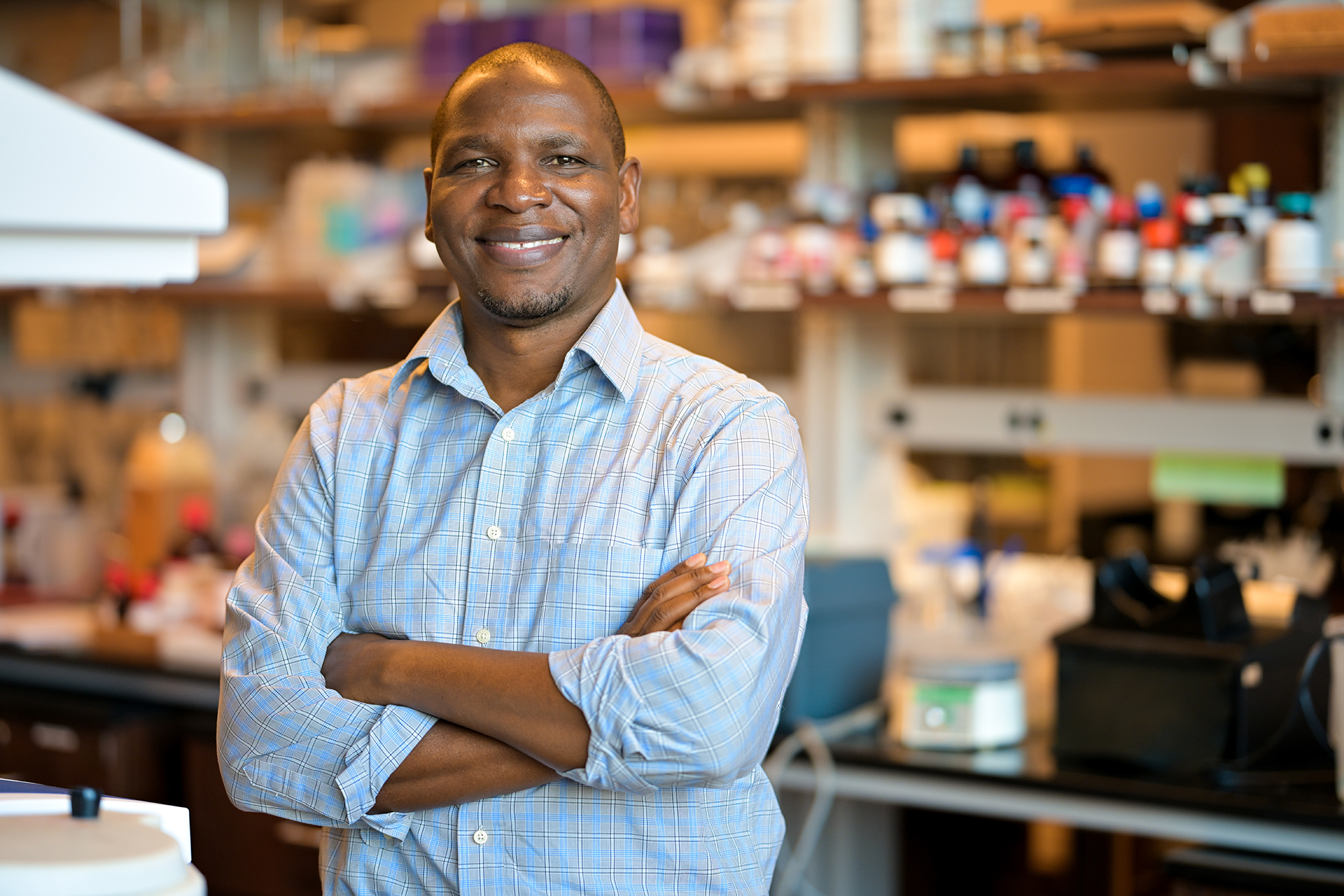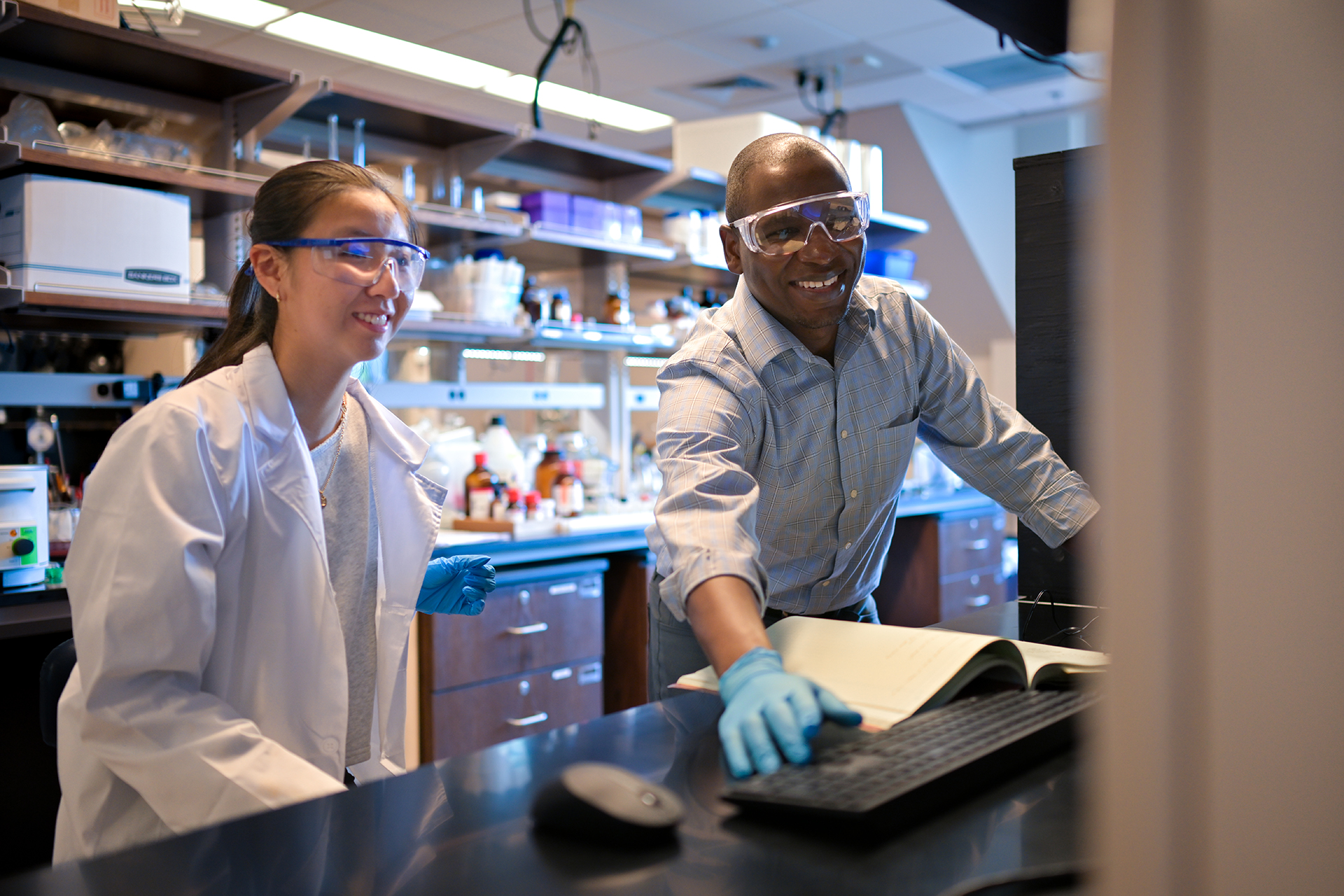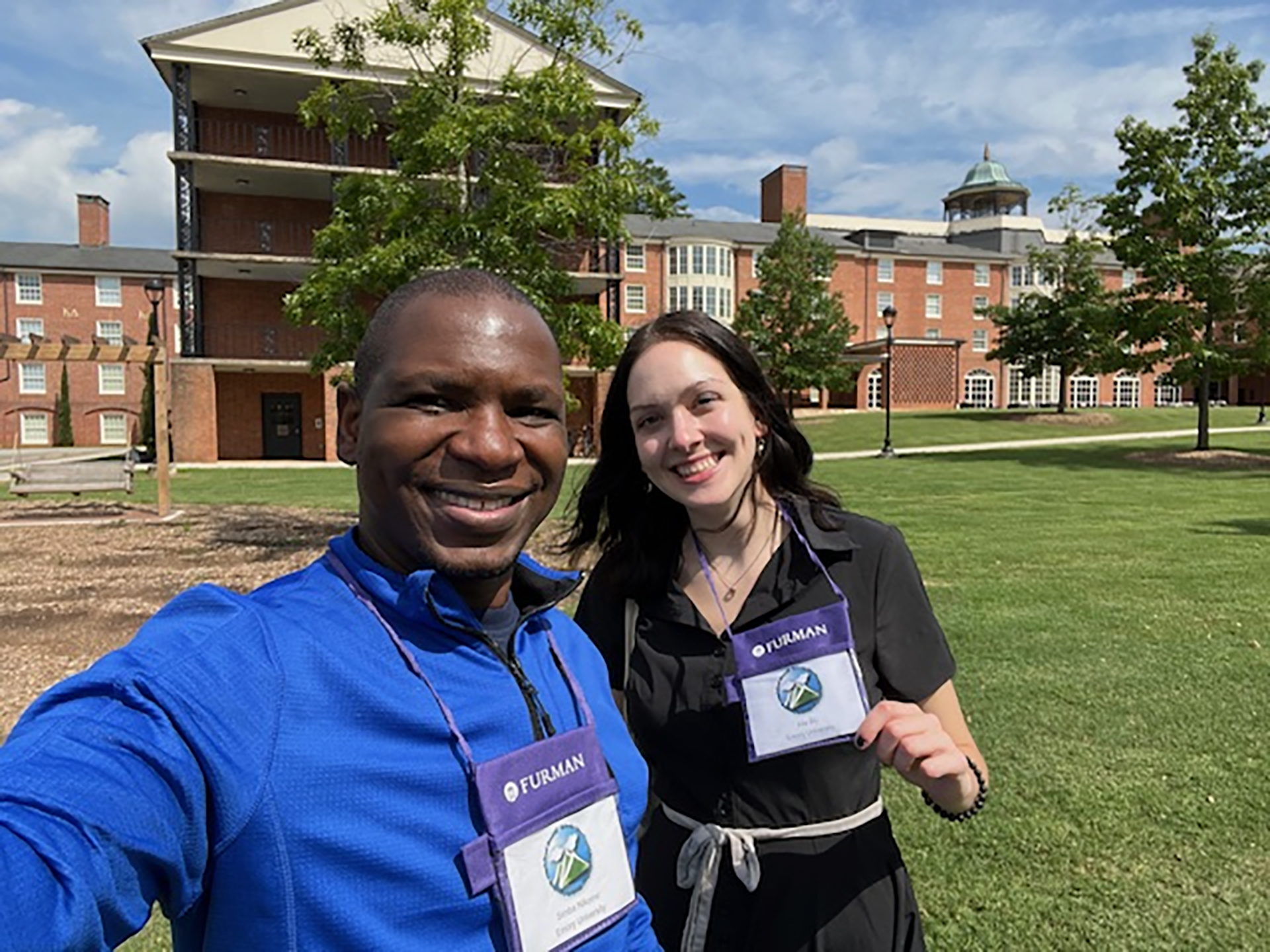Faculty Spotlight: Simba Nkomo

If you’ve spent any time around OSB, chances are you’ve heard his name or, more likely, just “Simba.” For nearly eight years, Dr. Simbarashe Nkomo has been a constant source of energy and encouragement, whether he’s guiding students through complex chemistry problems or mentoring them beyond the classroom.
Known for his deep commitment to teaching, community engagement, and student success, Simba is more than a faculty member; he’s a mentor, a role model, and a cornerstone of the Oxford experience. We sat down with him to learn more about his path to chemistry, what inspires him, and how he brings science and service to life on campus.
Q: You received your undergraduate education in Zimbabwe and your PhD here in the U.S. How has your experience as an international scholar shaped you?
Nkomo: The education system in Zimbabwe requires students to choose a field of specialization at an early stage. As a result, my undergraduate studies focused exclusively on courses within my major. My exposure to the liberal arts education in the United States has enabled me to develop a more interdisciplinary perspective, an approach that has been invaluable to my research.
 Q: You have conducted research into the importance of mentorship for students. What have you learned and how has that impacted your approach to teaching?
Q: You have conducted research into the importance of mentorship for students. What have you learned and how has that impacted your approach to teaching?

Nkomo: I’ve found that a strong mentoring structure is essential for creating meaningful and impactful undergraduate research experiences, especially for first- and second-year students. While faculty mentoring is vital, peer mentoring also plays a key role in fostering a supportive and collaborative learning environment. To encourage effective mentorship, I intentionally pair new students with more experienced peers.
Q: You are also a proponent of project-based learning. Can you give an example(s) of how you use this in your classroom?
Nkomo: I use an approach similar to Classroom-based Undergraduate Research Experiences (CUREs), which is designed to provide research experience to more students by integrating research directly into a course. One example is my Chem 205L course. In the first half of the semester, students are introduced to a variety of experimental techniques. In the second half, they apply the knowledge gained to design, develop, and carry out their own independent research projects. This approach not only familiarizes students with the research process but also cultivates independent thinking, a sense of ownership, and accountability. At the end of the semester, students present their findings in a research poster format.
Q: What is your favorite part of teaching at Oxford and being part of this community?
Nkomo: Working with students early in their college education allows me to contribute to building a strong foundation for their continued academic and professional development. One of my favorite aspects of teaching at Oxford is the strong sense of community. I enjoy getting to know both my students and colleagues, and I appreciate the mutual support that defines our environment. At the end of each spring semester, I celebrate with my Chem 205L class by going out for ice cream after their poster presentations, an informal tradition that reinforces our shared accomplishments.
 Q: You have received the MERCURY Conference Poster Session Faculty Mentor Award and have had many Oxford students present at academic conferences and win awards over the years. Why is giving students the opportunity to present at conferences important?
Q: You have received the MERCURY Conference Poster Session Faculty Mentor Award and have had many Oxford students present at academic conferences and win awards over the years. Why is giving students the opportunity to present at conferences important?

Nkomo: Providing students with the opportunity to present at conferences is essential for their professional development. These events expose them to broader audiences, including researchers from outside my field of specialization. By answering questions from professionals, students gain valuable insights into different ways of thinking and alternative approaches to scientific problem-solving. Conferences also offer important networking opportunities with fellow students, faculty from other institutions, and industry professionals. For example, when I take students to the MERCURY conference, they participate in coding workshops, engage with other undergraduate researchers, and attend presentations by experts from both academia and industry. They also learn about graduate school pathways and have the chance to meet and interact with authors whose work they have studied, sometimes leading to collaborative opportunities. These experiences boost students’ confidence and enhance their profiles for future research or career opportunities.
Q: Oxford is known for its strong STEM education and early research opportunities. What are some ways these research projects provide students with a jumpstart on careers in the sciences or medicine?
Nkomo: Critical thinking, problem-solving, and communication are among the most important skills students develop for their careers. Research experiences are one of the most effective ways to cultivate these skills. In the lab, students constantly troubleshoot procedures and equipment issues and consider how best to present their data to communicate their findings to broader audiences effectively. Students must learn to analyze and visualize data in figures that clearly convey their intended message. These are essential skills in both science and medicine, and at Oxford, students are gaining this valuable exposure early in their academic journey.
Q: What is your current/next research project/paper/area of study? Are students helping in any way?
Nkomo: I recently published a paper in CHAOS: An Interdisciplinary Journal of Nonlinear Science, co-authored with my collaborators. The article focuses on the synthesis and characterization of microreactors with tunable oscillatory behavior for the Belousov-Zhabotinsky reaction, an example of an oscillating chemical system. Last year, I also published a paper in the Journal of Chemical Education with a student co-author, Alia Bly. In my research lab, students are actively involved in conducting experiments and analyzing data. They gain valuable, transferable skills such as coding and data visualization. Working with students is one of the aspects of my role at Oxford that I enjoy most.